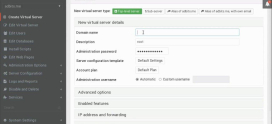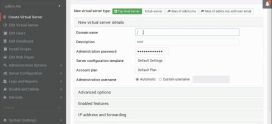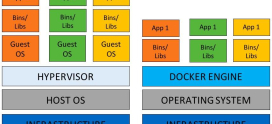
How to Achieve 100% Uptime in Cloud Hosting
Are you tired of dealing with downtime and the consequential stress of uncertain website performance? You’re not alone. In today’s fast-paced digital world, 100% uptime is not just a luxury; it’s an absolute necessity for businesses and individuals alike. Just think about it: your website is like your storefront—if it’s not open, potential customers may walk away and never come back. And in this realm of cloud hosting, achieving that perfect uptime isn’t just about choosing the right provider; it’s about implementing the right strategies too.
This article aims to empower you with practical insights and actionable tips on how to ensure your cloud hosting service delivers 100% uptime. We’ll cover everything from selecting a reliable hosting provider to implementing security measures and leveraging customer support effectively. So, let’s dive in and explore how you can keep your website up and running smoothly, every single day.
Understanding Cloud Hosting and Uptime
Before we get into the nitty-gritty, let’s clarify what cloud hosting is and why uptime is crucial. Cloud hosting uses multiple servers to host your website, distributing resources across these servers to enhance reliability and performance. This setup allows for better flexibility, scalability, and, most importantly, higher uptime than traditional hosting systems.
Uptime refers to the amount of time your website is operational and accessible. It’s typically expressed as a percentage. For example, 99% uptime means your site is down for about 3.65 days a year. While that might not sound like a lot, every minute your site is down could mean lost earnings and frustrated customers. Would you leave your storefront closed for days? Probably not!
Choosing the Right Cloud Hosting Provider
The Importance of Provider Reliability
Your journey to achieving 100% uptime starts with choosing the right cloud hosting provider. Not all providers are created equal; some invest heavily in infrastructure and customer service, while others might cut corners.
- Check Uptime Guarantees: Look for providers like DarazHost that offer an uptime guarantee, often above 99.9%. While it can never be 100% due to unforeseen circumstances, a higher percentage means they have a solid track record.
- User Reviews: Scrutinize customer reviews and testimonials. Real-world experiences can provide insight into the provider’s performance during outages.
- Infrastructure Quality: Examine the physical servers and data centers. Advanced and well-maintained infrastructures are vital for optimal uptime.
Service Level Agreements (SLAs)
Always read the fine print of the SLAs. They typically outline the expected standards for uptime and support response times. Make sure you understand what compensation you can expect during downtimes, encouraging accountability from your provider.
Implementing Redundancy
Why Redundancy is Key
Imagine a scenario where a single car breaks down on the highway—traffic halts. Now, if there were multiple routes available, traffic would flow smoothly even if one path is blocked. This analogy underscores the importance of redundancy in cloud hosting. Redundancy ensures that if one server fails, another can take its place, thus maintaining uptime.
- Server Redundancy: Use multiple servers in different locations to ensure continuity of service.
- Data Redundancy: Regularly back up your data to prevent loss during downtimes.
- Network Redundancy: Having multiple internet connections can keep your site accessible even if one service fails.
Prioritizing Security Measures
The Connection Between Security and Uptime
Security breaches can cause significant downtimes, leading to the loss of business. Therefore, a robust security strategy is critical in achieving 100% uptime.
- Firewalls: Utilize firewalls to protect your servers from malicious attacks.
- Regular Updates: Keep your software and plugins updated to fend off vulnerabilities.
- SSL Certificates: Secure your website with SSL certificates that not only build trust but also enhance security.
Monitoring and Maintenance
Importance of Ongoing Monitoring
Monitoring your website’s performance is crucial in identifying potential issues before they escalate. It’s like having a watchful eye over your storefront, ensuring everything is running smoothly.
- Performance Monitoring Tools: Use tools that can alert you to server issues or downtimes in real-time.
- Regular Maintenance Checks: Schedule routine maintenance to catch any potential problems before they occur.
- Analyze Traffic Patterns: Studying traffic patterns can help you anticipate peak loads and optimize resource allocation.
Choosing Scalable Solutions
Flexibility in Resource Allocation
Scalability is essential for managing your website’s traffic. If your traffic unexpectedly spikes, a scalable solution allows you to add resources on-the-fly without downtime.
- Elastic Cloud Services: Select hosting providers that offer elastic services to dynamically allocate resources based on needs.
- Load Balancers: Implement load balancers to distribute traffic evenly across servers, preventing overload.
Leveraging Customer Support
Why Support is Crucial
Even with the best planning, issues can still arise. Here’s where strong customer support becomes your lifeline. Having access to 24/7 support means you can quickly resolve issues that could lead to downtime.
- Responsive Support Teams: Ensure your provider has a support team that responds swiftly, preferably within minutes.
- Multiple Contact Channels: Check if they offer various channels, such as chat, email, or phone support, to reach them.
Regular Backups
The Safety Net for Your Data
Backing up your data is like having insurance for your website—it protects your assets and ensures continuity in case of unexpected failures.
- Automated Backups: Utilize automated backup solutions to save time and reduce the chance of human error.
- Offsite Backups: Always store backups in a different location to ensure accessibility even if your primary site goes down.
FAQs
What is meant by 100% uptime?
100% uptime means that your website is accessible and operational every minute of the day, eliminating any outages.
How can I monitor my website’s uptime?
You can use various uptime monitoring tools that send alerts if your site goes down and provide performance reports.
Do all cloud hosting providers guarantee high uptime?
No, not all providers offer high uptime guarantees. Always check the SLA and read reviews before making a decision.
What can cause downtime in cloud hosting?
Common causes include server overload, hardware failures, network issues, and security breaches.
Is it worth investing in redundancy?
Absolutely! Redundancy acts as a safety net, reducing the impact of failures and enhancing uptime.
How often should I back up my data?
It’s advisable to back up your data daily, especially for dynamic websites that change frequently.
Are you tired of dealing with downtime and the consequential stress of uncertain website performance? You’re not alone. In today’s fast-paced digital world, 100% uptime is not just a luxury; it’s an absolute necessity for businesses and individuals alike. Just think about it: your website is like your storefront—if it’s not open, potential customers may walk away and never come back. And in this realm of cloud hosting, achieving that perfect uptime isn’t just about choosing the right provider; it’s about implementing the right strategies too.
This article aims to empower you with practical insights and actionable tips on how to ensure your cloud hosting service delivers 100% uptime. We’ll cover everything from selecting a reliable hosting provider to implementing security measures and leveraging customer support effectively. So, let’s dive in and explore how you can keep your website up and running smoothly, every single day.
Understanding Cloud Hosting and Uptime
Before we get into the nitty-gritty, let’s clarify what cloud hosting is and why uptime is crucial. Cloud hosting uses multiple servers to host your website, distributing resources across these servers to enhance reliability and performance. This setup allows for better flexibility, scalability, and, most importantly, higher uptime than traditional hosting systems.
Uptime refers to the amount of time your website is operational and accessible. It’s typically expressed as a percentage. For example, 99% uptime means your site is down for about 3.65 days a year. While that might not sound like a lot, every minute your site is down could mean lost earnings and frustrated customers. Would you leave your storefront closed for days? Probably not!
Choosing the Right Cloud Hosting Provider
The Importance of Provider Reliability
Your journey to achieving 100% uptime starts with choosing the right cloud hosting provider. Not all providers are created equal; some invest heavily in infrastructure and customer service, while others might cut corners.
- Check Uptime Guarantees: Look for providers like DarazHost that offer an uptime guarantee, often above 99.9%. While it can never be 100% due to unforeseen circumstances, a higher percentage means they have a solid track record.
- User Reviews: Scrutinize customer reviews and testimonials. Real-world experiences can provide insight into the provider’s performance during outages.
- Infrastructure Quality: Examine the physical servers and data centers. Advanced and well-maintained infrastructures are vital for optimal uptime.
Service Level Agreements (SLAs)
Always read the fine print of the SLAs. They typically outline the expected standards for uptime and support response times. Make sure you understand what compensation you can expect during downtimes, encouraging accountability from your provider.
Implementing Redundancy
Why Redundancy is Key
Imagine a scenario where a single car breaks down on the highway—traffic halts. Now, if there were multiple routes available, traffic would flow smoothly even if one path is blocked. This analogy underscores the importance of redundancy in cloud hosting. Redundancy ensures that if one server fails, another can take its place, thus maintaining uptime.
- Server Redundancy: Use multiple servers in different locations to ensure continuity of service.
- Data Redundancy: Regularly back up your data to prevent loss during downtimes.
- Network Redundancy: Having multiple internet connections can keep your site accessible even if one service fails.
Prioritizing Security Measures
The Connection Between Security and Uptime
Security breaches can cause significant downtimes, leading to the loss of business. Therefore, a robust security strategy is critical in achieving 100% uptime.
- Firewalls: Utilize firewalls to protect your servers from malicious attacks.
- Regular Updates: Keep your software and plugins updated to fend off vulnerabilities.
- SSL Certificates: Secure your website with SSL certificates that not only build trust but also enhance security.
Monitoring and Maintenance
Importance of Ongoing Monitoring
Monitoring your website’s performance is crucial in identifying potential issues before they escalate. It’s like having a watchful eye over your storefront, ensuring everything is running smoothly.
- Performance Monitoring Tools: Use tools that can alert you to server issues or downtimes in real-time.
- Regular Maintenance Checks: Schedule routine maintenance to catch any potential problems before they occur.
- Analyze Traffic Patterns: Studying traffic patterns can help you anticipate peak loads and optimize resource allocation.
Choosing Scalable Solutions
Flexibility in Resource Allocation
Scalability is essential for managing your website’s traffic. If your traffic unexpectedly spikes, a scalable solution allows you to add resources on-the-fly without downtime.
- Elastic Cloud Services: Select hosting providers that offer elastic services to dynamically allocate resources based on needs.
- Load Balancers: Implement load balancers to distribute traffic evenly across servers, preventing overload.
Leveraging Customer Support
Why Support is Crucial
Even with the best planning, issues can still arise. Here’s where strong customer support becomes your lifeline. Having access to 24/7 support means you can quickly resolve issues that could lead to downtime.
- Responsive Support Teams: Ensure your provider has a support team that responds swiftly, preferably within minutes.
- Multiple Contact Channels: Check if they offer various channels, such as chat, email, or phone support, to reach them.
Regular Backups
The Safety Net for Your Data
Backing up your data is like having insurance for your website—it protects your assets and ensures continuity in case of unexpected failures.
- Automated Backups: Utilize automated backup solutions to save time and reduce the chance of human error.
- Offsite Backups: Always store backups in a different location to ensure accessibility even if your primary site goes down.
FAQs
What is meant by 100% uptime?
100% uptime means that your website is accessible and operational every minute of the day, eliminating any outages.
How can I monitor my website’s uptime?
You can use various uptime monitoring tools that send alerts if your site goes down and provide performance reports.
Do all cloud hosting providers guarantee high uptime?
No, not all providers offer high uptime guarantees. Always check the SLA and read reviews before making a decision.
What can cause downtime in cloud hosting?
Common causes include server overload, hardware failures, network issues, and security breaches.
Is it worth investing in redundancy?
Absolutely! Redundancy acts as a safety net, reducing the impact of failures and enhancing uptime.
How often should I back up my data?
It’s advisable to back up your data daily, especially for dynamic websites that









